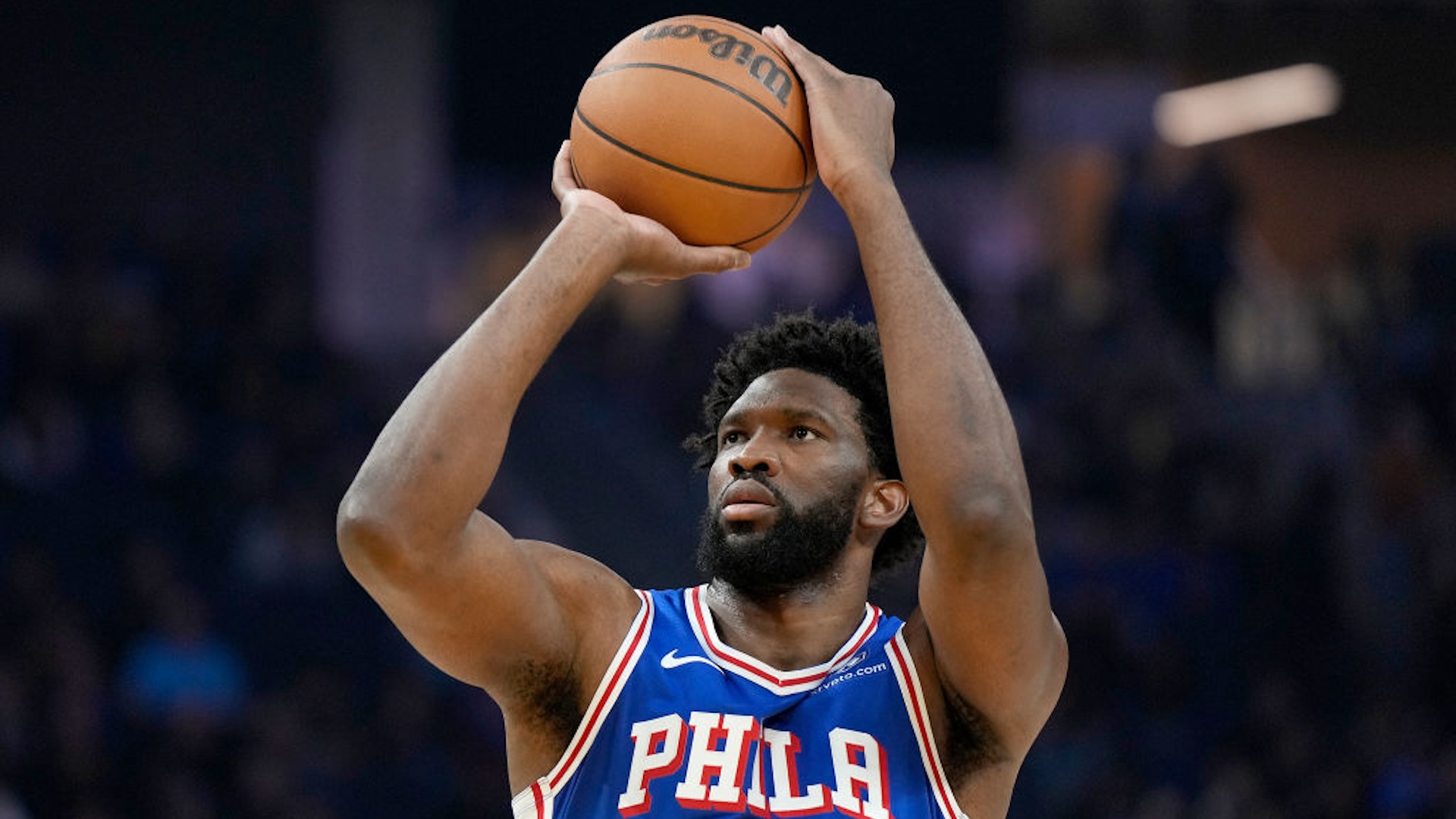Every Joel Embiid injury stings in its own way, dependent on the timing and severity. They have upended playoff runs, development arcs, rivalries, and entire seasons. Each time they arrive, you can only mutter, "Well this fucking sucks" and then survey the damage.
This time it really sucks. Adrian Wojnarowski reported last night that Embiid will undergo a procedure to address a meniscus injury in his left knee, and that as a result he will miss "an extended period" of time. That frustratingly vague prognosis is in keeping with what has been a frustrating few weeks: Embiid has been dealing with soreness in his left knee since January, which caused him to miss a few games earlier in the month. He then injured the knee against the Pacers on Jan. 25, sat out Jan. 27's matchup with the Nuggets, and returned to action on Jan. 30 against the Warriors just in time to get his knee further kerploded by a falling Jonathan Kuminga. Last week, The Athletic's Shams Charania reported that Embiid has a "displaced flap" of the meniscus, and that at the time the Sixers were trying to decide if he should just rest or have surgery. Now we know that they have chosen surgery.
We still must wait to find out just how long Embiid will be out of action. Woj not providing any kind of timetable in his report could be a sign that his sources are being cagey, but it's also just as likely that not even the Sixers' medical team knows yet how long he'll be out. Woj used some careful wording in his report—the meniscus will be "addressed" rather than "repaired" or "removed"—which indicates that the doctors may not know which route they are going to take until they get in there and have a look. Various internet doctors have weighed in since the news broke to explain that removing a piece of a damaged meniscus leads to weeks of recovery, whereas repairing it leads to months.
No matter the outcome of the surgery, this is a disastrous development for the Sixers. Embiid's injuries have cost them plenty in the past, but this one has the potential to be the most damaging. Embiid was in the midst of one of the greatest individual seasons in NBA history, averaging 35-11-5 while scoring more than a point per minute he was on the floor. He scored 70 points against the Spurs and looked to be on his way to another MVP award if he could play in the required 65 games. The Sixers have already slipped to fifth in the Eastern Conference, and now it's Tyrese Maxey's and Tobias Harris's job to keep them from falling any further.
Beyond what the Sixers are losing in Embiid—modern basketball's closest approximation to Wilt Chamberlain—there are also potential lost opportunities to be considered. The Sixers came into this season in an exceedingly rare and advantageous position. The James Harden trade not only netted them multiple first-round picks and a treasure chest of expiring contracts, but it also made the team better by moving Maxey into the starting point guard position, where he became an immediate star. This means that the Sixers, with a healthy Joel Embiid, are the kind of team that's not really supposed to exist: a championship contender with the trade assets and cap space of a rebuilding team. Armed with multiple first-round picks and about $100 million in expiring contracts, the Sixers are only trailing the Thunder in their ability to make a big trade or two at the deadline.
But none of that matters unless Embiid can play, which puts the Sixers in a dicey situation as the trade deadline approaches. If Embiid ends up on the shorter recovery timeline, is it still a good idea to make a trade and hope that by the time the playoffs start, Embiid will be fully operational and reintegrated into the improved roster? Or do they punt, and just decide to hang onto to all those picks and all that cap room until the summer? But if they do that, and Embiid does come back and play great in the playoffs, only for the Sixers to once again get bounced in some agonizing fashion because they were one or two key pieces short, just how much regret will fill the heart of Daryl Morey?
There aren't any good answers to these questions, because they all depend on the health of a guy whose body has never consistently held together. That he also happens to be perhaps the best basketball player on the planet only makes the reality of the situation more painful. We don't know what's going to happen to Joel Embiid, which means we don't know what's going to happen to the Philadelphia 76ers. That's how it's always been and always will be.






